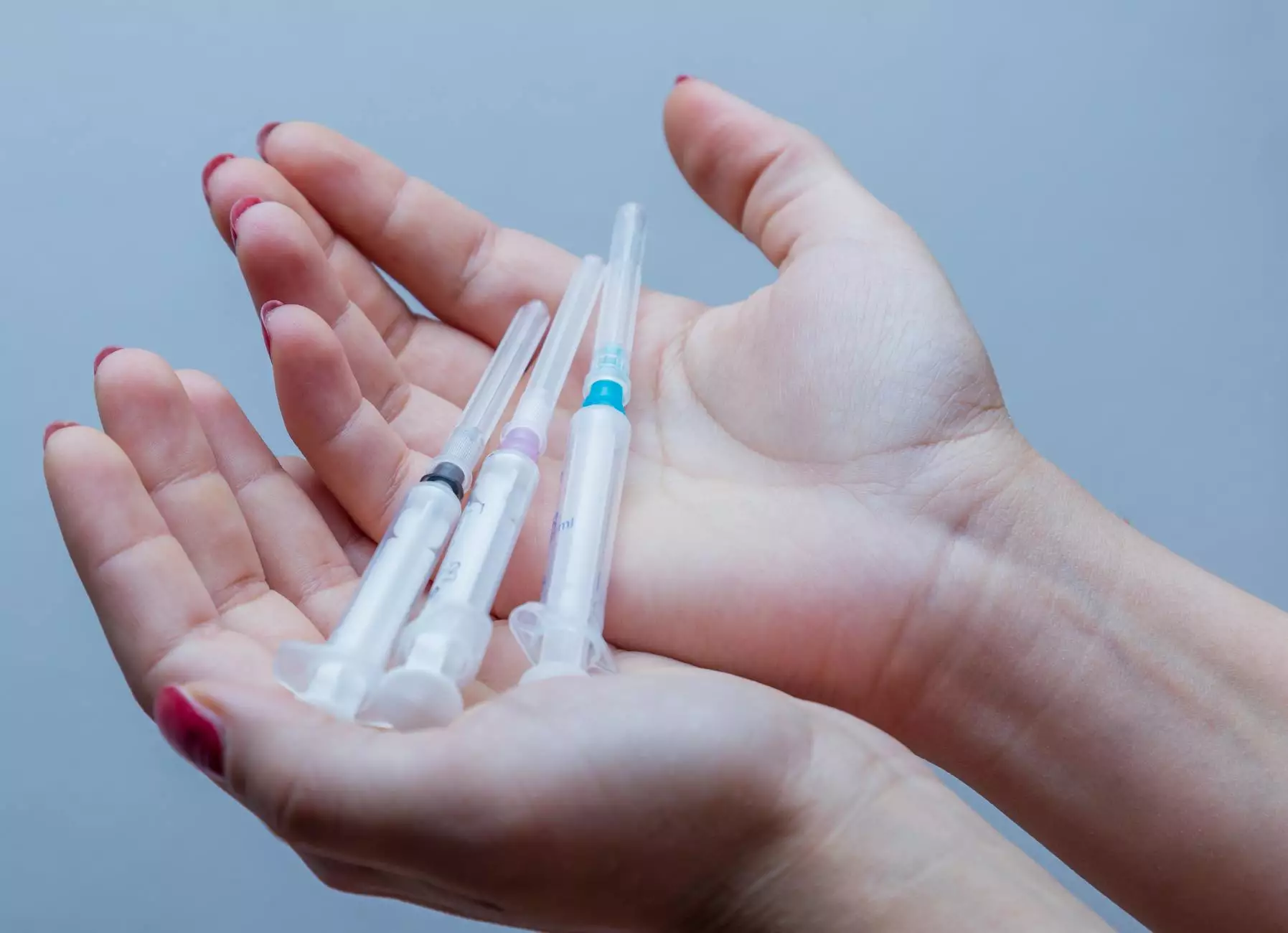Adenosine Triphosphate Disodium Injection: A Vital Component in Veterinary Medicine

Adenosine Triphosphate (ATP) is a molecule that plays a critical role in cellular energy transfer. In recent years, its utility in the veterinary field has gained considerable attention, particularly in the form of adenosine triphosphate disodium injection. This article delves deep into the significance of this injection, its applications within the business categories of veterinarians, pharmacies, and pet stores, and how it can improve animal health and care.
Understanding Adenosine Triphosphate Disodium Injection
Adenosine triphosphate disodium injection is a synthetic formulation that serves as an energy source for various biological processes. It is particularly useful in veterinary medicine due to its vital role in enhancing cellular metabolism, improving muscle function, and promoting quicker recovery in animals following surgical procedures or injuries.
Composition and Mechanism of Action
The composition of adenosine triphosphate disodium injection includes:
- Adenosine Triphosphate Disodium Salt: The primary active ingredient.
- Sterile Water for Injection: Acts as a carrier medium.
- Sodium Chloride: Maintains isotonicity.
Upon injection, the high-energy phosphate bonds in ATP are cleaved, releasing energy that is utilized by cells for various biochemical processes. This mechanism enhances cellular metabolism, thereby assisting in recovery and energy replenishment in stressed or recovering animals.
Applications in Veterinary Medicine
Adenosine triphosphate disodium injection is widely used in the veterinary field for various health issues, including:
1. Enhancing Recovery Post-Surgery
After surgical procedures, animals often experience a depletion of energy. The administration of this injection can facilitate cellular recovery, helping pets regain their vigor more quickly. Veterinarians commonly administer adenosine triphosphate disodium injection to:
- Promote faster healing of tissues
- Reduce recovery time significantly
- Enhance metabolic activity
2. Treating Muscle Weakness and Fatigue
In cases of muscle weakness or chronic fatigue, particularly in older pets, this injection can restore energy levels. By providing an immediate source of ATP, it assists in:
- Restoring normal muscle function
- Increasing endurance in physically active animals
3. Supporting Organ Function During Critical Illness
Animals suffering from critical illnesses often have compromised organ function. The use of adenosine triphosphate disodium injection can help maintain organ function by enhancing ATP availability, which is essential for:
- Cardiac function
- Renal function
- Neurological health
Benefits for Pharmacies and Veterinarians
For veterinarians and pharmacies that stock and administer adenosine triphosphate disodium injection, the benefits are manifold:
1. Increased Demand for Veterinary Services
As awareness of the benefits of ATP therapy grows among pet owners, more demand for veterinary services emerges. This can result in increased clientele for veterinary practices and pharmacies, improving overall business health.
2. Enhanced Treatment Protocols
Integrating ATP injections into treatment regimens allows veterinarians to offer cutting-edge therapies that differentiate their practice. This can enhance their reputation, attract clients, and ultimately lead to business growth.
3. Opportunities for Cross-Selling
Pharmacies can leverage the sale of complementary products, such as nutritional supplements and recovery aids, when promoting adenosine triphosphate disodium injection. This creates additional revenue streams and enhances customer satisfaction.
The Role of Pet Stores in Promoting ATP Therapy
Pet stores play a pivotal role in educating pet owners about the benefits of veterinary therapies, including:
1. Educating Pet Owners
Pet store staff can provide valuable information on health products that promote overall wellness, including ATP injections. When pet owners are informed about the importance of cellular energy, they are more likely to seek veterinary consultation.
2. Partnering with Veterinarians
Collaboration between pet stores and veterinary clinics can foster community trust and encourage pet owners to pursue veterinary advice for ATP therapy, driving traffic to both businesses.
Best Practices for Administration and Use
While adenosine triphosphate disodium injection is generally safe, adherence to best practices ensures optimal outcomes:
1. Dosage Guidelines
Veterinarians should follow recommended dosage guidelines based on the size and health status of the animal. Adjustments may be necessary for special cases, emphasizing the importance of professional oversight.
2. Monitoring Post-Administration
Close monitoring is essential after administration. Signs that indicate a positive response include increased activity, improved appetite, and notable engagement in normal behaviors.
3. Client Education
Veterinary practices and pharmacies must educate clients about the purpose of the injection and the expected outcomes, ensuring pet owners understand its role in their pet's health improvement.
Conclusion: Building a Healthier Future for Pets
The integration of adenosine triphosphate disodium injection in veterinary medicine represents a substantial advancement in how we care for pets. By facilitating recovery, enhancing cellular energy, and improving overall health, veterinarians and pharmacies can elevate their services and meet the growing demand from pet owners who seek the best for their beloved animals.
As the industry evolves, collaboration among veterinary practices, pharmacies, and pet stores becomes increasingly vital. With ongoing education and an emphasis on the latest scientific advancements, the future looks promising for both pets and the businesses dedicated to their well-being. Investing in such therapies not only enhances animal health but also nurtures business growth, ultimately benefiting the entire veterinary ecosystem.









